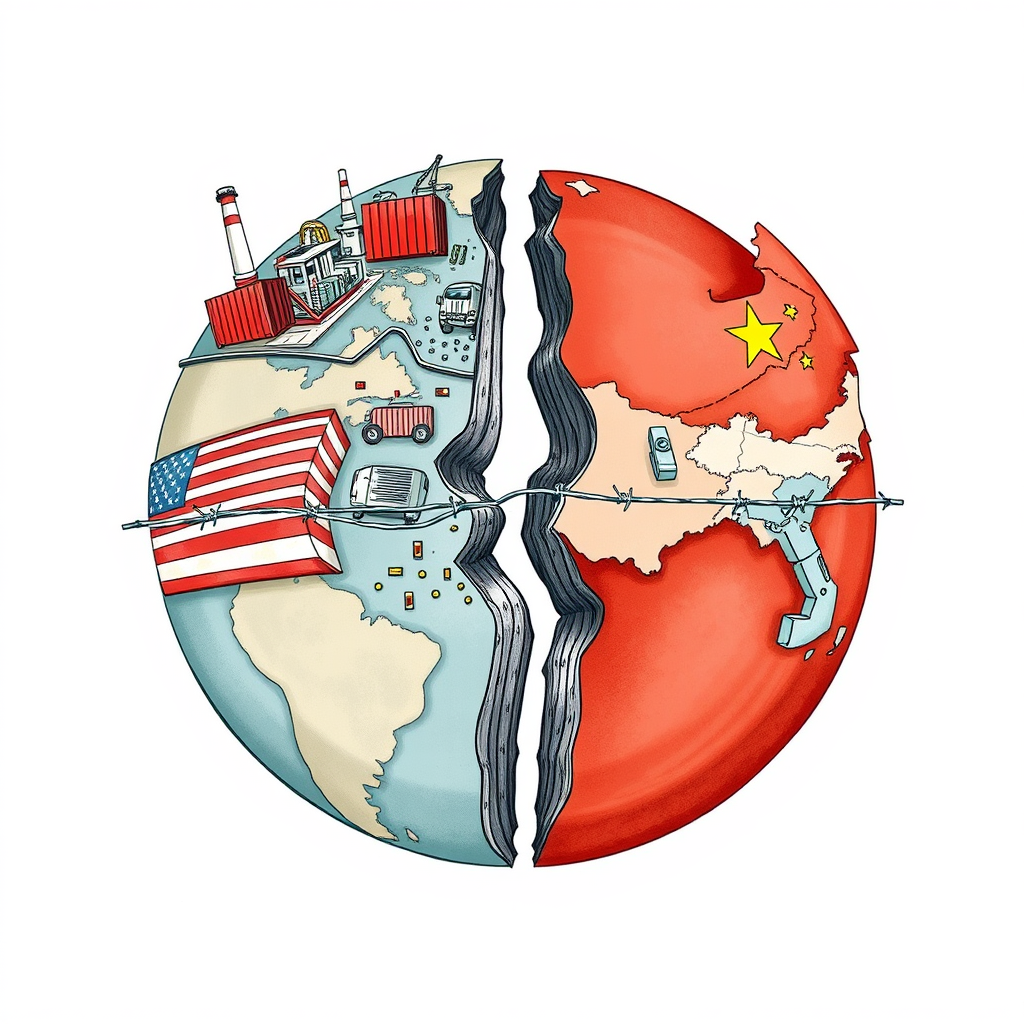China's Trade War Plan: Winning Against Trump?

The economic relationship between the United States and China is currently defined by escalating tensions and a complex web of tariffs, a situation experts warn could have far-reaching and destabilizing consequences. While a complete decoupling isn’t necessarily the most likely outcome, the current trajectory suggests a shift towards a more multipolar world, potentially marked by increased competition and risk.
The recent escalation of tariffs, initiated by the US, isn’t viewed as a winning strategy by most analysts. While the intent may be to reshape trade imbalances and encourage domestic manufacturing, the reality is a mutual economic slowdown. Chinese exporters are undoubtedly feeling the pinch, exacerbating existing issues within the Chinese economy, including a struggling property sector and sluggish consumer spending. However, American consumers and manufacturers reliant on Chinese components are also bearing the cost, effectively negating many of the intended benefits.
Interestingly, the selective application of tariffs – pausing levies on electronics while maintaining them on lower-value goods – appears to be inadvertently accelerating China’s focus on advanced manufacturing. This strategic shift could position China as a leader in key technologies like electric vehicles, robotics, and battery technology, potentially widening the technological gap with the US in the long run.
A key element of China’s approach seems to be a calculated assessment of its resilience. Unlike the US, China’s political system allows it to absorb economic pain with fewer immediate domestic repercussions. The absence of robust dissenting voices and a centralized decision-making process enable a long-term strategy, betting on the US’s susceptibility to economic pressures and political cycles. The recent backtracking on some tariffs by the US, triggered by market instability, seems to validate this assessment.
Beyond the economic implications, the breakdown in trade relations carries significant geopolitical risks. Experts warn that the stabilizing force of economic interdependence is eroding, potentially emboldening China to pursue more assertive actions, particularly concerning Taiwan. Without the economic incentives to maintain the status quo, the risk of unilateral action – invasion, blockade, or other disruptive measures – increases.
While some initially predicted China would emerge as the dominant global power from this trade war, the more likely scenario appears to be a fragmented world order. China and the US may each establish their own spheres of influence and trade networks, coexisting in a state of uneasy tension. This isn’t necessarily a future where China “wins” and the US “loses,” but rather a more dangerous and unpredictable world where cooperation is diminished and the potential for conflict is heightened.
The current situation underscores the importance of trade not just as an economic driver, but as a crucial component of international stability. The unraveling of this relationship isn’t simply a matter of dollars and cents; it’s a fundamental shift in the global landscape with potentially far-reaching and destabilizing consequences. The pursuit of short-term economic gains through protectionist measures risks undermining the long-term security and prosperity of both nations, and the world at large.